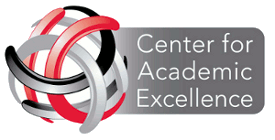Event Title
Collaborative Textual Editing: The Thrill of Engagement
Location
Dolan School of Business
Start Date
30-5-2014 9:15 AM
End Date
30-5-2014 10:15 AM
Session Type
Roundtable Discussion
Description
Those of us who teach literature that’s not contemporary face very specific challenges in engaging our students: for example, in teaching18th-century British literature, I need to help my students read language that seems unfamiliar to them, and introduce them to a historical period that they rarely know anything about.
Recently, I tried a new approach: I asked my students to collaborate on editing an actual 18th-century novella: the goal was to take the difficult and unfamiliar typography and language, and challenge my students to make it accessible for readers just like themselves. This new level of engagement with the text itself brought them into a more interactive understanding of the story, and pushed them to collaborate with each other and with me.
This workshop outlines the methodology I used to prepare my students for the work of editing and annotating an 18th-century text. We will discuss problems that arose, and the ways that students themselves resolved the problems.
Finally, we will discuss the ultimate goal of such a collaborative project: publishing the edited text as a digital edition, on a website.
We will review some current technologies and tools for producing durable websites for presentation of edited texts.
Workshop participants are invited to share their own experiences with textual editing and collaborative digital humanities projects.
Topic Designation
Teaching & Learning
Presenter Bio(s)
Sally O’Driscoll
Associate Professor
Department of English
Fairfield University
Collaborative Textual Editing: The Thrill of Engagement
Dolan School of Business
Those of us who teach literature that’s not contemporary face very specific challenges in engaging our students: for example, in teaching18th-century British literature, I need to help my students read language that seems unfamiliar to them, and introduce them to a historical period that they rarely know anything about.
Recently, I tried a new approach: I asked my students to collaborate on editing an actual 18th-century novella: the goal was to take the difficult and unfamiliar typography and language, and challenge my students to make it accessible for readers just like themselves. This new level of engagement with the text itself brought them into a more interactive understanding of the story, and pushed them to collaborate with each other and with me.
This workshop outlines the methodology I used to prepare my students for the work of editing and annotating an 18th-century text. We will discuss problems that arose, and the ways that students themselves resolved the problems.
Finally, we will discuss the ultimate goal of such a collaborative project: publishing the edited text as a digital edition, on a website.
We will review some current technologies and tools for producing durable websites for presentation of edited texts.
Workshop participants are invited to share their own experiences with textual editing and collaborative digital humanities projects.


